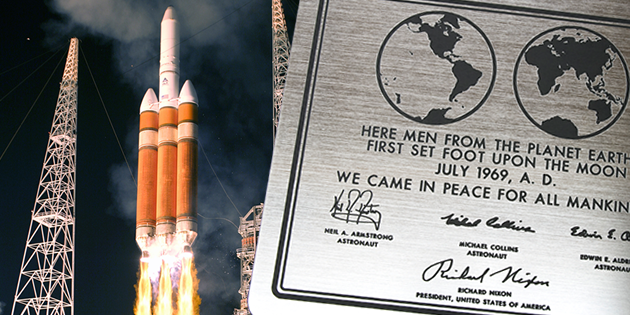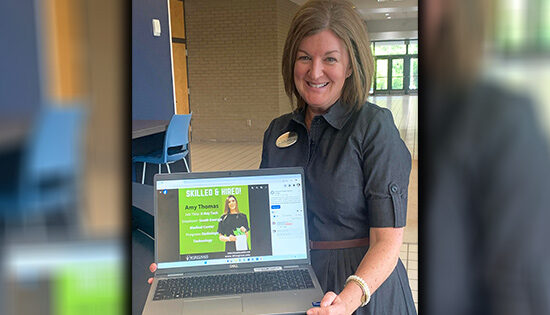Nick Rudnik, Valdosta Today Opinion Contributor:
Space Exploration May No Longer “Dazzle” Us, but its Benefits to Humanity Should Not Be Understated
In the immediate aftermath of the Space Shuttle Challenger disaster in January 1986, President Ronald Reagan gave his now-famous Challenger address to calm the heartbroken nation. The Challenger suffered a catastrophic malfunction causing the spacecraft to break apart 73 seconds following liftoff at Cape Canaveral, Florida. All seven of the space shuttle’s crew members perished as a result of the crash. President Reagan reminded us on that fateful January day that, “We’ve grown used to wonders in this century. It’s hard to dazzle us.” Reagan continued by noting that, “We’ve grown used to the idea of space and, perhaps, we forget that we’ve only just begun. We’re still pioneers.”
Reagan’s words still hold true: “it’s hard to dazzle us.” Perhaps because of the regular space shuttle flights over the course of the shuttle program’s thirty year run, we’re no longer “dazzled” by “ordinary” spaceflight.
And, Congress has responded accordingly. In the mid-1960s, NASA’s agency budget sat at nearly 4 percent of the aggregate U.S. federal budget. Today, NASA’s budget is approximately half of 1 percent of the annual U.S. budget. This deeply concerns me.
Manned spaceflight is an investment. The scientific and consumer benefits inherent to space exploration are immense. For instance, the practical, cooking applications of microwave ovens were first uncovered at NASA’s Jet Propulsion Laboratory in California. Further, aircraft systems, cochlear implants, freeze-dried food, memory foam mattresses, microcomputers, photovoltaic (solar) cells, portable x-ray machines, breast cancer detection equipment, and more are all, some way, rooted in our nation’s space program. Exploring our solar system makes us develop new, innovative technologies for humans to survive in the harsh, unforgiving conditions of the subzero vacuum that is outer space.
And think how these gadgets and inventions have strengthened our economy, and improved our quality of life. But, there is a more direct answer for the need for space exploration, as well: the need for a new home. NBC News correspondent, Jay Barbree, reminisced in 2009 that President John Kennedy sought to develop a U.S. space program because first, “Kennedy wanted to win the space race with the Russians—but more importantly, it was his dream to send astronauts to the moon. They needed to go because Earth is finite, a cradle for humans, and if humans are to survive they need homes out there.”
Whether it is in a hundred, a thousand, or ten thousand years: our Earth will not sustain human life in perpetuity. Our planet’s resources will eventually be exhausted in the future, and we need to be ready when that happens—if our species is to survive. Spending a few billion dollars more per year to explore the vastness of space doesn’t seem like such a drop in the bucket now, right?
Moreover, if our nation is to have the best space program, we need to have the best scientists. We need to make a concerted, national effort to encourage science, technology, engineering, and mathematics (STEM) fields in our primary, secondary, and postsecondary classrooms. The children in our elementary schools should be taught that the natural sciences, the scientific method and way of thinking, and space exploration are far “cooler” than banal reality TV, pop culture, and the like.
These are the wide-ranging benefits of investing in space exploration. Sure, to some, not all of human space exploration is “sexy,” or “cool.” But it truly is man’s “final frontier.” To me, space travel has always been dazzling—to use President Reagan’s word; human spaceflight has always struck me as something straight out of the annals of science fiction. It never ceases to amaze me.
NASA’s funding is far too limited. A peculiar possibility is that private space corporations will send teams to the Martian surface before NASA (which has stated they hope to send a crew to Mars by the 2030s).
The Orion spacecraft affixed to the Delta IV rocket (pictured above, left) is the technology currently being tested to take mankind farther into the heavens than ever before—perhaps back to the moon, to asteroids, to the Martian surface, and even beyond. But, this technology requires more funding and more manpower.
Conceivably with more rocketry and more innovative experiments, the American public will again embrace our great push to travel across our solar system. We must remember this obligation to study the cosmos is unique to the human experience. We are the only life-form known to exist with the capabilities to travel across the great void of space.
John F. Kennedy reminded us that we do these things as Americans “not because they are easy, but because they are hard.” We are a civilization very much born from the great explorations of yore. We owe it to ourselves and posterity, for perhaps millennia beyond our own time, to make these investments to study the great firmament above.
If we do not, the human race, very truly, hangs in the balance.
 Nicholas A. Rudnik is currently pursuing a degree in political science with a concentration in American politics at Valdosta State University. Previously, he’s served as a congressional page in the U.S. House of Representatives during the 111th Congress and in the Office of U.S. Congressman Sanford Bishop. Further, Nick has served on staff at an institutional interest group, the Association of American Law Schools, in Washington and has worked in the private sector. He has presented his research, focused primarily on congressional parties and elections, at regional academic conferences and hopes to pursue a graduate degree in political science. Nick is currently completing two manuscripts relating to southern congressional elections and judicial decision-making in the area of campaign finance; he can be contacted via e-mail at narudnik@valdosta.edu. Follow Nick on Twitter: @NickRudnik.
Nicholas A. Rudnik is currently pursuing a degree in political science with a concentration in American politics at Valdosta State University. Previously, he’s served as a congressional page in the U.S. House of Representatives during the 111th Congress and in the Office of U.S. Congressman Sanford Bishop. Further, Nick has served on staff at an institutional interest group, the Association of American Law Schools, in Washington and has worked in the private sector. He has presented his research, focused primarily on congressional parties and elections, at regional academic conferences and hopes to pursue a graduate degree in political science. Nick is currently completing two manuscripts relating to southern congressional elections and judicial decision-making in the area of campaign finance; he can be contacted via e-mail at narudnik@valdosta.edu. Follow Nick on Twitter: @NickRudnik.











